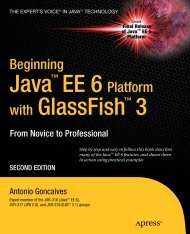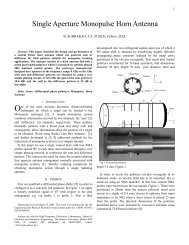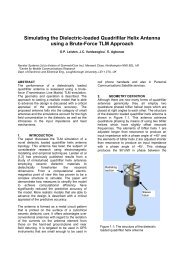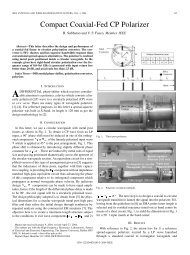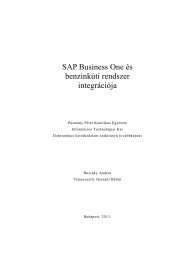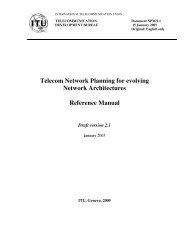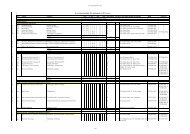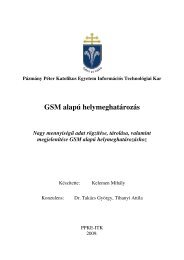PPKE ITK PhD and MPhil Thesis Classes
PPKE ITK PhD and MPhil Thesis Classes
PPKE ITK PhD and MPhil Thesis Classes
Create successful ePaper yourself
Turn your PDF publications into a flip-book with our unique Google optimized e-Paper software.
5.2 Application of the results 119<br />
solution is known. With the minimal modification of such problems (which has<br />
analytic solution), the computed precision is remaining probably acceptable with<br />
a similar problem, which has no analytic solution.<br />
5.2.3 The importance of Global Analogic Programming<br />
Unit<br />
In order to provide high flexibility in CNN computations, it is interesting how we<br />
can reach large performance by connecting locally a lot of simple <strong>and</strong> relatively<br />
low-speed parallel processing elements, which are organized in a regular array.<br />
The large variety of configurable parameters of this architecture (such as state<strong>and</strong><br />
template-precision, size of templates, number of rows <strong>and</strong> columns of processing<br />
elements, number of layers, size of pictures, etc.) allows us to arrange an<br />
implementation, which is best suited to the target application (e.g. image/video<br />
processing). So far, without the GAPU extension, when solving different types<br />
of PDEs, a single set of CNN template operations has been implemented on the<br />
host PC: by downloading the image onto the FPGA board (across a quite slow<br />
parallel port), computing the transient, <strong>and</strong> finally uploading the result back to<br />
the host computer where logical, arithmetic <strong>and</strong> program organizing steps were<br />
executed.<br />
Reconfigurable CNN-UM implementation on FPGAs may also mean a possible<br />
breakthrough point towards industrial applications, due to their simplicity, high<br />
computing power, minimal cost, <strong>and</strong> fast prototyping.


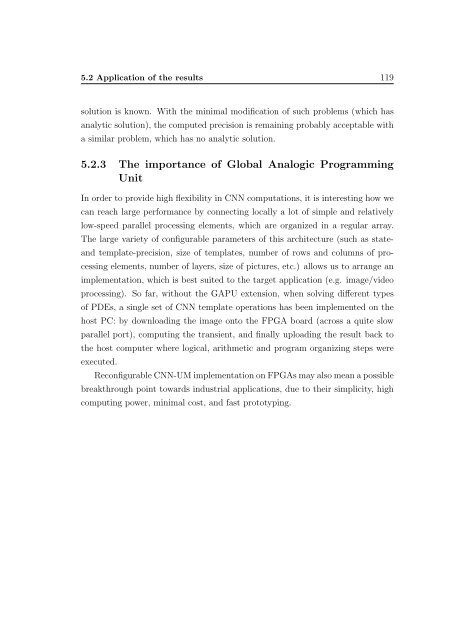

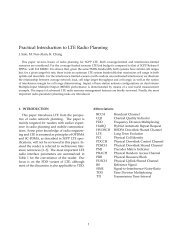
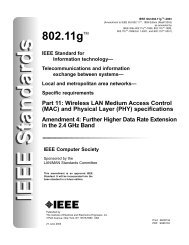
![optika tervezés [Kompatibilitási mód] - Ez itt...](https://img.yumpu.com/45881475/1/190x146/optika-tervezacs-kompatibilitasi-mad-ez-itt.jpg?quality=85)
